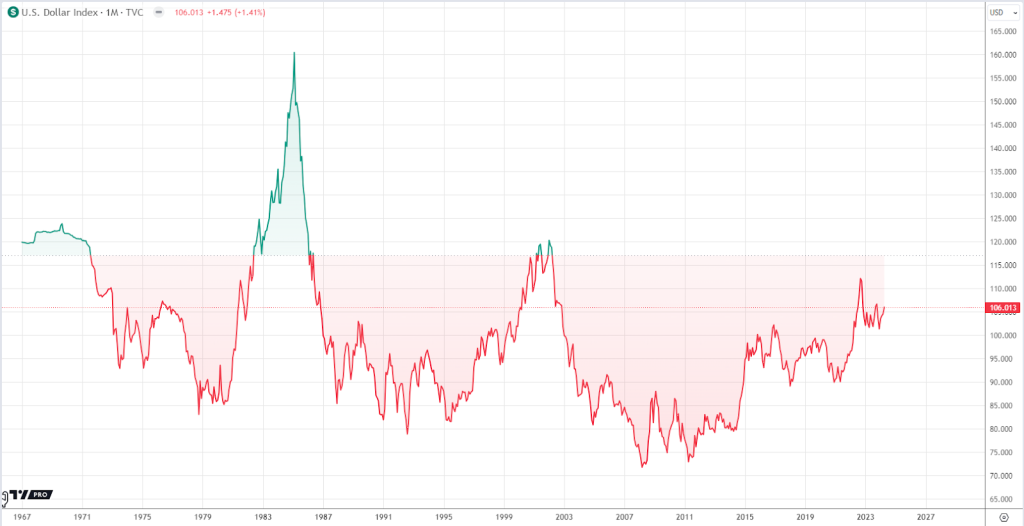The state of the US economy is influenced by multiple domestic and international factors, including:
- foreign debt;
- dollar strength;
- social stability;
- global relations;
- geopolitical tensions;
- trade dynamics with China;
- Europe’s economic health;
- performance of major corporations;
- political environment.
Let’s examine them closer.
One major concern is the growing US foreign debt, which, while initially demonstrating confidence in the economy (and its ability to meet obligations), can eventually affect borrowing costs and creditor confidence. The performance of the US dollar index, which reflects the dollar’s value against a basket of foreign currencies, impacts US export opportunities and trade imbalances.

Social issues like labor market instability, income inequality, and healthcare access can hinder economic growth and fuel political discontent. US international relations, including trade negotiations and conflicts, sanctions, and military interventions, directly impact the economy. For instance, instability in energy supplies due to conflicts in regions like the Middle East and Ukraine can influence global oil and gas prices.
China stands as one of the United States’ most significant trading allies. Trade balances, tariffs, and concerns over intellectual property rights between these nations carry both risks and potential benefits for the American economy. The state of affairs in Europe is equally critical, given the European Union’s status as another vital trading partner and a significant source of investment for the United States.
In addition, US elections consistently influence economic policy. Alterations in taxation, government expenditure, and regulatory frameworks can profoundly impact economic dynamics and the investment environment.
The modern US economy heavily relies on tech giants like Amazon (NASDAQ:AMZN), Apple (NASDAQ:AAPL), Nvidia (NASDAQ:NVDA), Microsoft (NASDAQ:MSFT) and Tesla (NASDAQ:TSLA). These companies not only drive innovation but also shape the country’s economic landscape, contributing significantly to the gross domestic product (GDP), job creation, and international trade. They also make substantial tax contributions despite ongoing debates about their tax practices.
For those considering investment opportunities in the United States, exploring a free market replay simulation could prove beneficial. Such simulations accurately mirror price fluctuations in real-time, offering inexperienced investors a risk-free environment to learn and practice trading strategies.
Investing in the US economy presents both significant opportunities and risks. Diversification, market research, and economic policy analysis can mitigate potential downsides. Despite challenges, the American economy has historically shown resilience and long-term growth potential.






